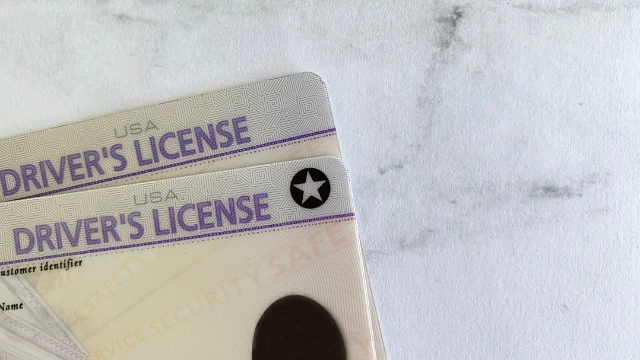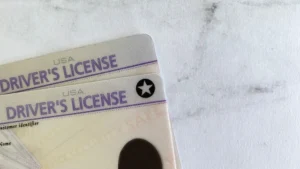

The Challenge of a Suspended License
Imagine relying on your car for work, errands, and family responsibilities—only to lose your driving privileges overnight. A license suspension can feel like losing your independence, making even simple tasks difficult. Whether your suspension was due to a DUI, unpaid tickets, or accumulating too many points, the good news is that you may have options to appeal and reinstate your license.
License suspension appeals are a legal process that allows drivers to challenge the suspension, present evidence, and request reinstatement. Understanding the steps involved, possible defenses, and legal factors that impact your appeal can significantly increase your chances of getting back on the road legally.
Why Licenses Get Suspended
Each state has different laws regarding license suspension, but common reasons include:
- DUI or DWI convictions – Driving under the influence results in automatic suspension in most states.
- Excessive traffic violations – Too many speeding tickets or reckless driving offenses can lead to suspension.
- Unpaid traffic tickets or fines – Ignoring fines can result in a suspension until the debt is settled.
- Failure to maintain car insurance – Driving without proper insurance can lead to a suspended license.
- Medical conditions – Some medical issues, such as seizures or vision problems, may lead to suspension for safety reasons.
- Failure to appear in court – Ignoring a court summons related to a traffic violation can trigger a suspension.
Once a license is suspended, drivers must wait for a set period or file an appeal to regain their driving privileges.
License Reinstatement: The Appeal Process
A license reinstatement appeal is a formal request to review the suspension and restore driving rights. The process varies by state but generally involves the following steps:
1. Request a Hearing
Most states allow drivers to request a hearing with the Department of Motor Vehicles (DMV) or a state administrative court. The deadline to request a hearing varies—some states require it within 10 to 30 days of the suspension notice.
2. Gather Evidence for Your Case
Drivers need to present a strong case to show why their license should be reinstated. Common forms of evidence include:
- Proof of Insurance: Showing valid insurance coverage.
- Traffic School Completion: Completing driver improvement courses.
- Medical Reports: If a health condition caused the suspension, providing a doctor’s clearance can help.
- Payment Receipts: If the suspension was due to unpaid fines, proof of payment is required.
3. Attend the Hearing
At the hearing, a judge or DMV officer will review the case and determine whether reinstatement is justified. This is an opportunity to explain the circumstances, provide documentation, and argue for reinstatement.
4. Comply with Court or DMV Orders
If the appeal is granted, the driver may need to fulfill additional requirements, such as:
- Paying reinstatement fees
- Installing an Ignition Interlock Device (IID) for DUI cases
- Completing probationary driving periods
Once all conditions are met, the DMV will issue a new license, often with restrictions (such as limited driving hours or work-related use only).
Sentencing Factors That Affect License Suspension Appeals
The success of a license suspension appeal depends on several factors:
- Reason for Suspension: A driver suspended for a minor traffic offense has a better chance of reinstatement than someone convicted of multiple DUIs.
- Driving History: A clean record before the suspension strengthens an appeal, while a history of repeated violations may lead to a denial.
- Compliance with Court Orders: Completing court-mandated programs, such as DUI education or defensive driving courses, improves appeal outcomes.
- Public Safety Concerns: If the driver poses a high risk to public safety, the DMV may deny reinstatement.
- State-Specific Laws: Some states have zero-tolerance policies for repeat offenders, limiting appeal options.
For example, in California, drivers convicted of a DUI must complete a mandatory suspension period and install an Ignition Interlock Device (IID) before applying for reinstatement.
Case Study: How One Driver Successfully Appealed a License Suspension
Background
John, a 40-year-old sales representative, had his license suspended due to excessive speeding tickets. He needed his car for work and couldn’t afford to lose his job over the suspension. Facing a six-month suspension, he decided to file an appeal.
Defense Strategy
John’s attorney prepared his appeal by:
- Gathering Proof of Traffic School Completion: John enrolled in a defensive driving course to show his commitment to safe driving.
- Highlighting Employment Dependence: His lawyer argued that losing his license would cause financial hardship, impacting his ability to support his family.
- Negotiating for a Restricted License: Instead of full reinstatement, they requested a work-only driving permit.
Outcome
The judge granted a restricted license, allowing John to drive to and from work. After six months of good behavior, he fully regained his license.
Final Thoughts
A license suspension can be frustrating, but in many cases, appealing the suspension and proving eligibility for reinstatement can restore your driving privileges. If you are facing suspension, working with a traffic attorney can improve your chances of success and help you regain your freedom.
Frequently Asked Questions (FAQs)
- How long does a license suspension appeal take? The process can take a few weeks to several months, depending on the state and complexity of the case.’
- Can I drive while my appeal is pending? In most cases, no. However, some states allow temporary permits if an appeal is filed promptly.
- Do I need a lawyer for a license reinstatement hearing? It is not required, but having a traffic attorney improves your chances of success, especially for complex cases like DUIs.
- What if my appeal is denied? If denied, drivers may need to wait out the suspension period or reapply with additional supporting evidence.
- Can a suspended license affect my job? Yes. Many employers require a valid driver’s license, and suspension can impact job opportunities in fields like sales, trucking, and delivery services.



